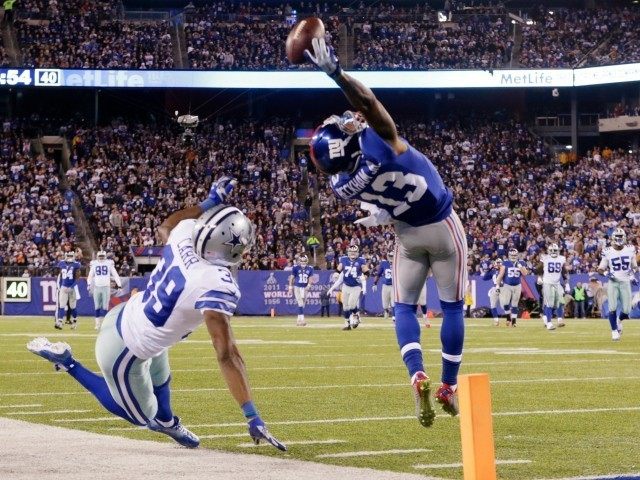Stuart Scott understood the meaning of sports, and he revealed it not in a War and Peace-like treatise but through a solitary word culled from the single least used part of speech in the English language.
But even the family of interjections living in Webster’s dictionary didn’t quite express the sentiment the sportscaster searched for. So, in the “return to normalcy” spirit of Warren G. Harding, Scott unleashed a six-letter, ear-pleasing exclamation that combined a linguistically transcendent word that scares children across the globe with a corruption of the English term expressing the affirmative. As the neologism’s component parts would suggest, “booyah” positively jarred.
Nelson Cruz hits a grand slam in the bottom of the eleventh. Booyah! Troy Polamalu decleats a slot receiver whizzing across the middle. Booyah! Sidney Crosby scores on a one-timer. Booyah! Ray Allen swishes a three at the buzzer. Booyah!
Like sports themselves, the thumotic term comes from deep inside the chest. Just as the young participants on the field, court, diamond, and ice can’t stymie their endless energy, the watcher of such contests at an elite level can’t muzzle the “booyah!” It’s so natural that one wonders why we never shouted it until it left Stuart Scott’s lungs after he likely heard it in hip-hop parlance.
Sports Center, when Stuart Scott described the action, made the games fun, exuberant, exciting. The show was, for lack of a better term, really booyah. Sports, particularly on the network Stuart Scott called home, has become police blotter, gossip sheet, and op-ed page. Rather than an escape from everyday life, sports coverage increasingly encroaches upon the games with all that we try to escape through them. We can’t give all that a “booyah”—just a “boo.”
The bespectacled Scott, though he played club football in college, didn’t look the part of ex-jock played convincingly by so many ESPN personalities. Nevertheless, he grasped the meaning of sports as a participatory activity as perceptively as he grasped the meaning of sports as a voyeuristic pleasure.
“When you die, it does not mean that you lose to cancer,” he explained at last year’s ESPY awards. “You beat cancer by how you live, why you live, and in the manner in which you live. So live. Fight like hell.”
Scott lived and loved for seven years after his initial cancer diagnosis. ESPN naturally found in him a worthy candidate for the Jimmy V Award for Perseverance after he repeatedly beat the disease before it inevitably returned in remission for rematches.
One of the great benefits of sports is that they play as a metaphor for life’s challenges. In youth hockey and football, kids get knocked down and then get up. In baseball, batters fall behind in the count, and teams fall behind on the scoreboard, only to stick with it and succeed. When the five guys on the court play for 48 minutes in the NBA, amazing happens.
“I now have a responsibility to not ever give up,” Scott appropriately explained after accepting an award named for a coach overflowing with life taken by the same disease, after a dogged fight, at an even younger age than the sportscaster.
Stuart Scott, like the sports he covered, existed at the end as inspirational, aspirational, and motivational. If he didn’t absorb the grit from the athletes he covered, then surely the athletes he covered could benefit by imitating his grit. Everybody could.
The ESPN fixture-factotum’s early departure coaxes a tear from strangers. Stuart Scott’s tenacious battle with the Big C and contagious joy, like a Michael Jordan jumper over Craig Ehlo, makes us all shout a buoyant “Booyah!”

COMMENTS
Please let us know if you're having issues with commenting.